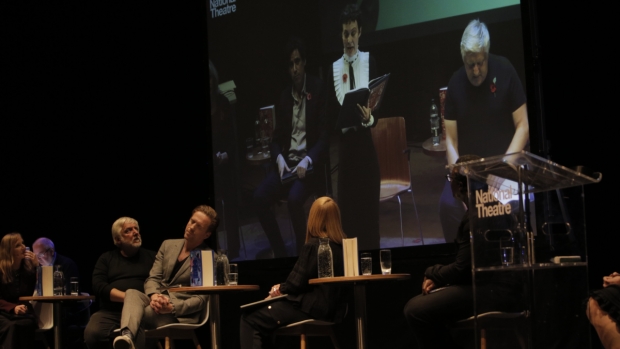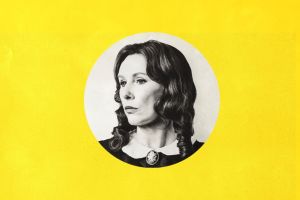A Poet for Every Day of the Year at the National Theatre – Helen McCrory remembered in powerful evening
A variety of readers took the stage to mark the new anthology

© Urszula Soltys
There's something about poetry. Spending an hour listening to a company of fine actors reading verse aloud is like simultaneously being offered a hug and a cold shower of clarity in one all-embracing package. It feels comforting and stimulating at the same time.
When the event is dedicated to the memory of Helen McCrory, who had performed at similar events over the years, there's an additional patina of melancholy, but also of pertinence. She thought poetry mattered and supported Allie Esiri's passionate determination to make it a part of our daily lives. We would do well to listen.
This year's reading, the fifth, marked the launch of Esiri's latest anthology A Poet for Every Day of the Year, published by MacMillan. It opened with McCrory's husband Damian Lewis telling the story of the phrase "stealing someone's thunder". Which apparently comes from the failed playwright John Dennis in 1709. "You weren't expecting that were you," said Lewis, with a grin, before explaining that no-one had ever stolen McCrory's thunder and since she loved the National and loved poetry this was the perfect event to remember her with.
Thereafter the formula was very simple. Esiri gave a brief, informative and charming introduction, and then Lewis, Simon Russell Beale, Lesley Sharp, Fay Ripley, and Danny Sapani read a poem, while the artist Chris Riddell drew an illustration for each with magical fluency, conjuring worlds with soft pencils and gentle lines.
It may have been straightforward, but it was also riveting. A wide variety of verse was on offer from Lewis's game rendition of Robert Burns' "Address to a Haggis", in honour of Burns' Night, to Russell Beale picking his way through the humour and sadness of W H Auden's "O Tell me the Truth About Love", to Sharp's wonderfully funny rendition of Wendy Cope's offbeat "Song", in which a man sits on his lover's banana.
Ripley and Sharp together gave us Tennyson's "Charge of the Light Brigade" and Amy Levy's lesbian love song "At A Dinner Party", while Sapani ranged from Wordsworth's "Composed Upon Westminster Bridge" to Ray Antrobus's "Two Guns in the Sky for Daniel Harris", a devastating description of a deaf man being shot by the police as he attempts to sign. Lewis read Keats' "Ode to Autumn" as if it were newly written, and Lemn Sissay's gorgeous "Invisible Kisses" with a gentle sadness; Russell Beale found all the wonder in Shakespeare's "Sonnet 98" ("From you have I been absent in the spring").
The readings were sometimes dramatic – Sharp in Seamus Heaney's battling "The Cure at Troy" – sometimes comic – Ripley reading Spike Milligan's "Never Bath in An Irish Stew" – always engrossing. They spanned the years. Everyone lined across the stage to perform George Marriott Edgar's "Albert and the Lion", a poem commissioned by Stanley Holloway from a skilled vaudevillian, and the less familiar, smartly satirical "A Brief History of Modern Art in Poetry", by the ‘Poet Laureate of Twitter' Brian Bilston.
Throughout, the mix of the familiar and the less known, the serious and the funny, was beautifully judged and delivered with the warmth of a group of people sharing something they loved. Then, as the evening came to a close, Lewis read "Everything is Going to Be Alright" by Derek Mahon, a poem whose tender defiance in the face of death and sorrow struck a resonant chord for all the losses of so many people over the past two years.
But McCrory had to be granted the last word, and there she was, on film, in all her blazing splendour, impossibly glamorous, using all her fierce, fine intelligence to make every word of Mary Oliver's "Wild Geese" speak and soar. Lewis, his face washed with sadness, closed his eyes to listen. It was the only possible ending for a memorable evening.












